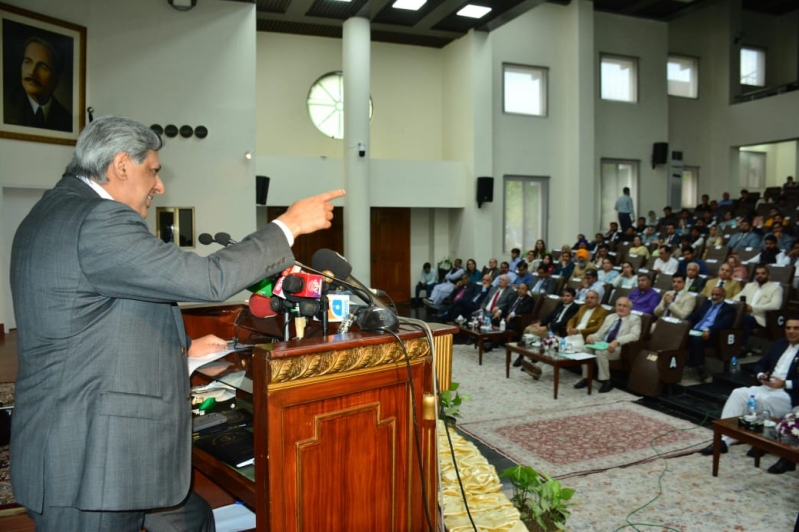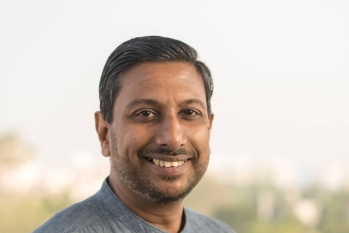
In a landmark move to foster inclusivity and ensure equitable representation within the public sector, the Pakistan government has launched a transformative initiative aimed at integrating minority communities, including Christians, more actively into the country’s civil service.
On July 7 (Monday), the Civil Services Academy (CSA) launched its first-ever month-long residential training program aimed at equipping minority youths with the skills and preparation needed to successfully pass the civil services entrance examinations. The CSA is the country’s leading institution for training candidates who qualify through the annual Central Superior Services (CSS) examinations, administered by the Federal Public Service Commission (FPSC).
The flagship program comprises three phases. In the first phase, awareness sessions will be held in 14 universities across Pakistan to provide essential information to non-Muslim students about the CSS examination and career opportunities in civil services.
The second phase involves a one-month residential orientation course, launched simultaneously, which will equip participants with foundational knowledge and skills required for the CSS examination.
The third phase will feature a four-month intensive preparatory program in 2026, tailored to provide the aspiring candidates with advanced training, confidence, and resources necessary to compete effectively in the examination.
Addressing the launch ceremony of the program, Director of the Common Training Program, Syed Shabbir Akbar Zaidi said that 45 non-Muslim youths have been nominated by the governments of four provinces — Punjab, Sindh, Khyber-Pakhtunkhwa and Balochistan – to participate in the one-month residential orientation program at the CSA. The provincial governments will bear the subsidized fee of 200,000 Pakistani Rupees (704 USD) for each participant, he added.
Zaidi said that the program was conceived to bridge the information and access gap for marginalized youths.
“Most of these candidates either failed the written CSS exams or scored below merit. Despite a 5 percent quota for minorities in federal jobs, their representation in the civil service remains dismally low,” he said.
In 2023, the government conducted a special CSS examination to fill 121 vacant posts reserved for minorities under the 5 percent quota. However, only 16 candidates, of which seven were Christians, qualified the written examination.
Speaking as chief guest of the launch ceremony, Federal Minister for Law and Human Rights, Senator Azam Nazeer Tarrar said that articles enshrined in Pakistan’s 1973 Constitution guaranteed equality, freedom, and fundamental rights.
Tarrar particularly cited Article 36, which pertains to the protection of minority rights, as part of the state’s ethical and social responsibilities.
“I’m here today as the Minister for Human Rights to remind young officers that the country must be steered collectively, just like carriages of a train moving in the same direction. Unfortunately, our train has fallen behind, and it is now our responsibility to set it back on the right track,” he said, emphasizing the need for building an inclusive society.
“Pakistan needs people who could spread love, not command from above. We are all Pakistanis, whether part of a majority or a minority, and that singular identity must prevail,” he added.
Referring to the white in Pakistan’s flag, the minister said it symbolizes minorities and that the spirit “must be reflected in our behavior, not just our symbols.”
He highlighted the formation of the National Commission for Minority Rights, established under Articles 20, 26, 27, and 36 of the Constitution, to ensure equal opportunities and protection for non-Muslim citizens.
“These provisions are not dormant clauses; they are living elements of our constitutional fabric. With sincere efforts, a time will come when special quotas for minorities will no longer be necessary, as inclusivity becomes the norm,” he said.
In his brief address, Dr Ramesh Kumar Vankwani, chairman of the Pakistan Hindu Council, suggested institutionalizing such opportunities by holding special CSS exams regularly and extending the age limit from 30 to 35.
“We appreciate the outreach program, but age-rule relaxation should not be a one-time concession,” he said.
The Hindu leader also stressed on the need for using the term “non-Muslim” over “minority”, saying the word “minority” reflected a narrower, exclusionary mindset. He urged that this terminology be adopted across all government institutions, including the CSA.
Commenting on the government’s initiative, Bishop of Lahore of the Church of Pakistan, Rt Reverend Nadeem Kamran said that the program would break systemic barriers for the marginalized minority communities, especially Christians, most of whom are settled in Punjab Province.
“The church supports the CSA’s outreach program, and we will encourage and motivate our youths to take advantage of this opportunity,” he told Christian Daily International after the event.
The church leader acknowledged that most Christians hailed from disadvantaged educational backgrounds, resulting in the community being unable to take full advantage of the 2 percent quota for minorities in higher education institutions in Punjab as well as the 5 percent federal jobs quota.
“There’s an urgent need to improve the quality of education in church-run educational institutions also so that Christian students and job aspirants can not only benefit from the special quotas, but are also able to compete on open merit in the national mainstream,” he said.
Hindus remain Pakistan’s largest religious minority, comprising 1.61% of the country’s population of 240 million. According to 2023 data from the Pakistan Bureau of Statistics, Christians account for 1.37%, while Muslims make up 96.35%. Other minorities, including Sikhs, Buddhists and Zoroastrians, make up less than 1%.






